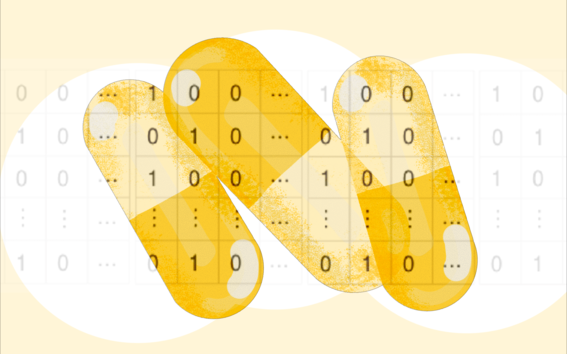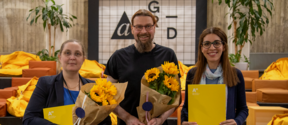AI predicts which drug combinations kill cancer cells

When healthcare professionals treat patients suffering from advanced cancers, they usually need to use a combination of different therapies. In addition to cancer surgery, the patients are often treated with radiation therapy, medication, or both.
Medication can be combined, with different drugs acting on different cancer cells. Combinatorial drug therapies often improve the effectiveness of the treatment and can reduce the harmful side-effects if the dosage of individual drugs can be reduced. However, experimental screening of drug combinations is very slow and expensive, and therefore, often fails to discover the full benefits of combination therapy. With the help of a new machine learning method, one could identify best combinations to selectively kill cancer cells with specific genetic or functional makeup.
Researchers at Aalto University, University of Helsinki and the University of Turku in Finland developed a machine learning model that accurately predicts how combinations of different cancer drugs kill various types of cancer cells. The new AI model was trained with a large set of data obtained from previous studies, which had investigated the association between drugs and cancer cells. ‘The model learned by the machine is actually a polynomial function familiar from school mathematics, but a very complex one,’ says Professor Juho Rousu from Aalto University.
The research results were published in the prestigious journal Nature Communications, demonstrating that the model found associations between drugs and cancer cells that were not observed previously. ‘The model gives very accurate results. For example, the values of the so-called correlation coefficient were more than 0.9 in our experiments, which points to excellent reliability,’ says Professor Rousu. In experimental measurements, a correlation coefficient of 0.8-0.9 is considered reliable.
The model accurately predicts how a drug combination selectively inhibits particular cancer cells when the effect of the drug combination on that type of cancer has not been previously tested. ‘This will help cancer researchers to prioritize which drug combinations to choose from thousands of options for further research,’ says researcher Tero Aittokallio from the Institute for Molecular Medicine Finland (FIMM) at the University of Helsinki.
The same machine learning approach could be used for non-cancerous diseases. In this case, the model would have to be re-taught with data related to that disease. For example, the model could be used to study how different combinations of antibiotics affect bacterial infections or how effectively different combinations of drugs kill cells that have been infected by the SARS-Cov-2 coronavirus.
Further information
Heli Julkunen
Project Researcher, Aalto University
[email protected]
Juho Rousu
Professor, Aalto University
Finnish Center for Artificial Intelligence FCAI
[email protected]
Tel. +358 50 4151 702
Tero Aittokallio
Group Leader, Institute for Molecular Medicine Finland (FIMM), University of Helsinki
[email protected]
Read the full paper
Heli Julkunen, Anna Cichonska, Prson Gautam, Sandor Szedmak, Jane Douat, Tapio Pahikkala, Tero Aittokallio, and Juho Rousu. Leveraging multiway interactions for systematic prediction of pre-clinical drug combination effects. Nature Communications. DOI: 10.1038/s41467-020-19950-z
Link to the research article: https://www.nature.com/articles/s41467-020-19950-z
Read more

- Published:
- Updated:
Read more news

Aalto Open Science Award ceremony brought together Aaltonians to discuss open science
Last week we gathered at A Grid to celebrate the awardees of the Aalto Open Science Award 2023 and discuss open science matters with the Aalto community.
Seed funding available to boost collaboration between Aalto, KU Leuven and University of Helsinki
Aalto University, KU Leuven and the University of Helsinki launch the 2nd exploratory seed funding call to explore research collaboration possibilities. The funding call is open until 10 September 2024.
Workshop day for teachers: 360° environments and podcasts
On Tuesday 4.6. a workshop day consisting of 360° environment creation and podcast production provides a way to get to know these media in practice. Feel free to join both workshops or one of them according to your time and interest.